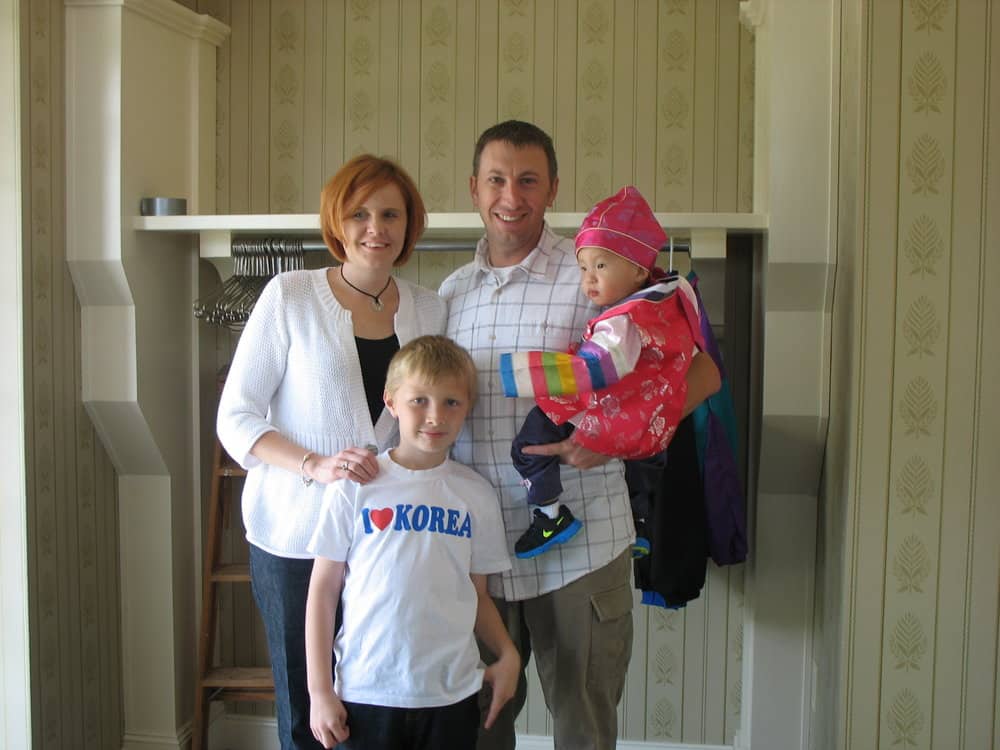This is the second part of a reflective piece that was written by a mother who recently returned from Korea to meet her child. She shares about how she personally reconciled and dealt with some of the difficulties adoptive parents can face in the period of adjustment.
Our social worker came for her first visit and noticed that he was refusing to make eye contact with us, but especially with me. For about a month after we returned home he still preferred my husband. She told us from the start that I needed to be the main caregiver during the bonding process, but that I really needed to step up my game now. While bottle feeding, I would offer toys by putting them in front of my eyes to encourage eye contact. I would also raise treats to my eyes before offering then to him when feeding. At bath time when I would rub lotion on him I would let him rub lotion on my arms too. All these things were to try to get him to bond with me. As soon as we came home, we put an air mattress in his room and slept with him at night. I enjoyed rocking him before bed and singing to him, especially when he would start singing, “up above the world so high” from Twinkle, Twinkle Little Star. I at least knew he was listening.
Four months later people ask us if we are adjusted. My answer is always “no.” I look back and feel like we have made progress, but I also know that we have a way to go. Our son has substituted the face rubbing for rubbing our arms. He has to do this when he falls asleep at night and wakes up several times a night moaning/crying and reaches through the bars of his crib for my arm. I am still in his room after four months. Our social worker said this could take a year or so for him to be fully adjusted. She said he is bonded, but he has a fear that we are going to leave, so he wakes up making sure we are there. This breaks my heart that my toddler, while asleep, wakes up to makes sure that we are still there and haven’t left him!!! He now looks us both in the eyes and he will play alone longer than he used to. There are still times when he cries and throws a fit to be held or to grab our arm. The difficult part is distinguishing between when he is just being a toddler and when is he dealing with loss?
After three months of being at home with him, my husband and I have both started back to work and are now dropping him off at a friend’s house three days a week. This transition has went well for him. He usually cries a little when I leave, but she said by the time I reach my car, he stops. When my husband picks him up, he will greet him but then go back to playing so we know he is comfortable there.
Overall, I am very pleased with how things have gone. We are so happy that our son had such a loving foster mother who cared for him so well for a year. When you think about it, our four months is a fraction of what four months means to him. He is very smart and is learning words, sign language and interacts well with others. He is attached to us, he just has a fear that we will leave him. As parents, this is a fear that we must understand is our responsibility to alleviate.
Laurie Toth
Cleveland, OH
tothadoptionjourney.blogspot.com
Check back for future posts of stories and reflections shared by Spence-Chapin families.






